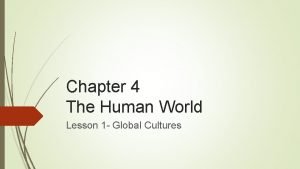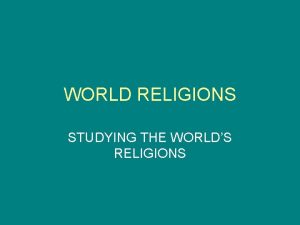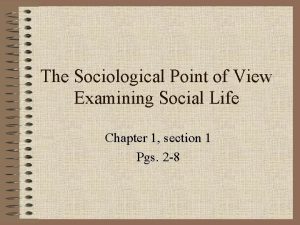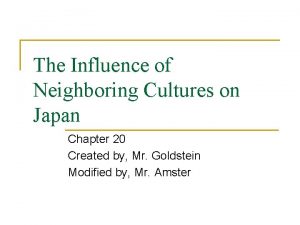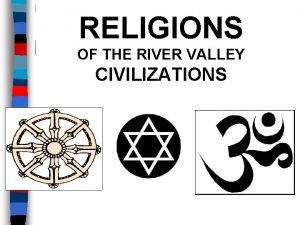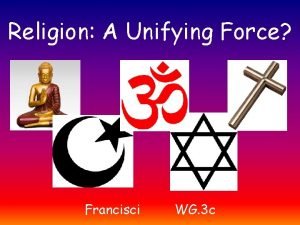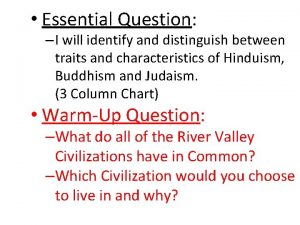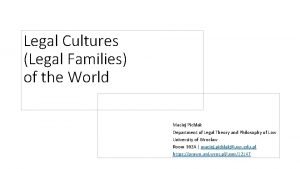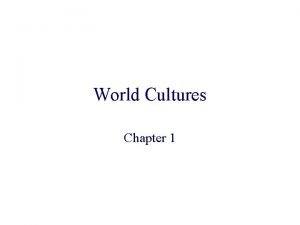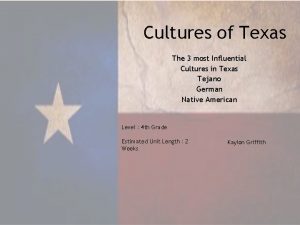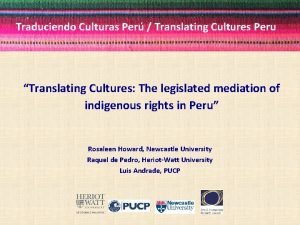Legal Cultures Legal Families of the World Introduction

















- Slides: 17

Legal Cultures (Legal Families) of the World Introduction to Law Criminal Justice – fall & winter 2019/2020 Dr. Maciej Pichlak | Department of Legal Theory and Philosophy of Law | University of Wroclaw | Maciej. Pichlak@uwr. edu. pl

Main legal families • Civil law (Romano-Germanic) • Common law (Anglo-American) • Far East • Islamic • Hindu • Scandinavian • [Post-soviet]

The concept of legal family Criteria for distinguishing legal family (Koetz and Zweigert): • Historical background; • Methods of reasoning; • Institutions; • Sources of law; • Dominant ideology. Other possibilities: language; territory; political system

Civil law vs common law Source: www. frenchentree. com

Civil law • Originates from the continental Europe • Based on the reception of the Roman law • Legislation is the primary source of law • Codifications (Code of Napoleon, BGB) • Similar methods of legal reasoning and interpretation • Abstract, systematic; the role of legal doctrine

Germanic Romanistic Nordic Mixed Common law Source: By Ain 92 - Own work, CC BY-SA 3. 0, http: //commons. wikimedia. org/w/index. php? curid=26 756779 Civil law: Germanic vs Romanistic Tradition

1900 1811 1804

Common law • Originates from England, adopted in its (former) colonies • Embraces legislation, regulations and judge-made law (precedents: common law in a strict sense) • Precedents might be based on common law or equity • Developed independently, without reception of the Roman law • Less codified and systematized • More casuistic and practically-oriented

Common law and civil law: further differences The role of judges The Rule of Law vs. Rechtsstaat Separation of powers vs check and balance Models of judicial constitutional control

Religious and traditional laws • Islamic law (Sharia and Fiqh), Hindu law (India), Halakha (Israel) • Distinct from the western idea of law • No clear separation of legal, religious, or moral standards • In contemporary legal systems their status varies

Islamic law • Sharia (rules) and Fiqh (jurisprudence) • Sources of sharia: Quran and Sunnah • Spheres of regulation: • • • Religious obligations Family law Economic laws Criminal laws Dietary, hygiene, dress code etc.

Application of sharia - Muslim’s personal law - full; - others Source: https: //commons. wikimedia. org/w/index. php? curid=2474 5568 - none;

Legal system of India vs. „Hindu law” • India is a federal state and laws may vary from one state to another • The legal system of India is called a hybrid system and includes: • Common law • Civil law (mainly on Goa) • Various personal laws, according to ethnicity and religion (Hindu law, Muslim’s law, „Christian” law)

„Hindu law” • A post-colonial term; the more proper one is Dharma • Group of customs and traditional standards • Regarded to be the oldest jurisprudential system in the world • Based on a caste system • To some extent recognized by formal legal system and Indian courts • Relates mainly to personal laws, family (marrital) laws, some private contracts

Legal systems of Far East • Most relevant: Chinese law, Japanese law • Contemporarily usually a mixture: • of western law and traditional customary law (Japan); • of western law and socialist law (China). • Said to be more focused on harmony than justice, reconciliation than adjudication. • Less litigatory than in the so called Western world.

Legal system of China • Civil law (Mainland) • Common law (Hong Kong) • Socialist law • Tradition? (confucianism, legalists)

China: Traditions of legal thought Confucius: • The idea of harmony and hierarchy • Li: traditional morality and customs, internalized by human nature • Less reliance in external regulations and sanctions Legalists: • All people are equal • Neccessity of codification and strict punishment • Law is an external measure to secure social order • Stress on legalism and obeying the laws
 Organizational cultures often reflect national cultures.
Organizational cultures often reflect national cultures. Big families vs small families
Big families vs small families Lesson 1 global cultures
Lesson 1 global cultures Old world language families
Old world language families Subcultures
Subcultures Which cultures believe in reincarnation
Which cultures believe in reincarnation The comparative study of past and present cultures
The comparative study of past and present cultures In what ways did neighboring cultures influence japan?
In what ways did neighboring cultures influence japan? Which cultures believe in reincarnation
Which cultures believe in reincarnation Slidetodoc.com
Slidetodoc.com Which cultures believe in reincarnation
Which cultures believe in reincarnation Adrian holliday small cultures
Adrian holliday small cultures Taste different cultures
Taste different cultures Types of cultures
Types of cultures Collectivistic cultures
Collectivistic cultures Personal sense of identity
Personal sense of identity Recreational activities across cultures and genders
Recreational activities across cultures and genders Is buddhism monotheistic or polytheistic
Is buddhism monotheistic or polytheistic


